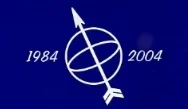Jun86
archive > Log > Log1986
Hong Kong
Marine Police

AT the end of January, Superintendent Ian Ward, Staff Officer Training, Royal HK Police, left few stones unturned in his exposition of the Marine Police. A voluminous knowledge coupled with a good-humoured delivery left his listeners in no doubt that the subject was dear to his heart. Ian traced the formation of the force back to the days when the primary aim was to keep the shipping lanes free of pirates. Nothing daunted, he also opened and led discussion on the future role of the force—whether it should be part of the existing police force, or as a quasi-navy or as a coastguard with clearly defined responsibilities and functions such as those connected with search and rescue.
Then, as if we did not already have a good speaker in January, Captain Geoff Walker, Director of Navorient Maritime, and, from all accounts, an old China hand, came along in March and presented a highly topical and informative paper.
The subject concerned the trials, tribulations and minor victories of supervising and representing commercial shipping operations in mainland China. Captain Walker was frank, forthright and certainly pulled no punches in his nonetheless good-natured description of dealing with Chinese bureaucracy. He suggested that at first sight trade and shipping to China looked promising and exciting; on experience it was rather harrying. The fundamental problem was the heavy congestion. Many shipowners fixed to China with visions of large demurrage payments until the balloons burst when they suddenly realised that laytime did not start when they thought it did.
The famous 'despatch agreements', called by less euphemistic names in other parts of the world, are a commercial and operational necessity in China. Captain Walker affirmed that the only way to negotiate these was with a smile: losing one's temper at the sometimes ridiculous demands would cause untold delays. Geoff Walker's paper was followed by one of the longest question times in the history of the Branch—an indication of the Pandora's Box he opened.
Owing to the emigration of C.Y. Tong, who had taken over the chairmanship on G.A. Marchant's departure from Hong Kong, a new Chairman was elected at the March meeting. Captain Allan C. Pyrke had been proposed by E. D. Robson, seconded by N. J. Lopez and was elected as Chairman unanimously. Further to C. Y. Tong's departure, Captain J. Fonseka was invited to join the Branch Committee. There is agreement in principle from the other professional maritime body, the RINA/IMarE, that a joint seminar on the Hong Kong registry with The Nautical Institute would be desirable. It is imperative that the Branch should be concerned and be seen to be concerned about qualifications and training/certification standards, as this is one of the principal objects of the Institute.
Contributed by Captain J. H. Lopez, FNI
Seaways June 1986

